News
Bjorn Low - master of the edible garden city
Posted 06 06 2019
in News
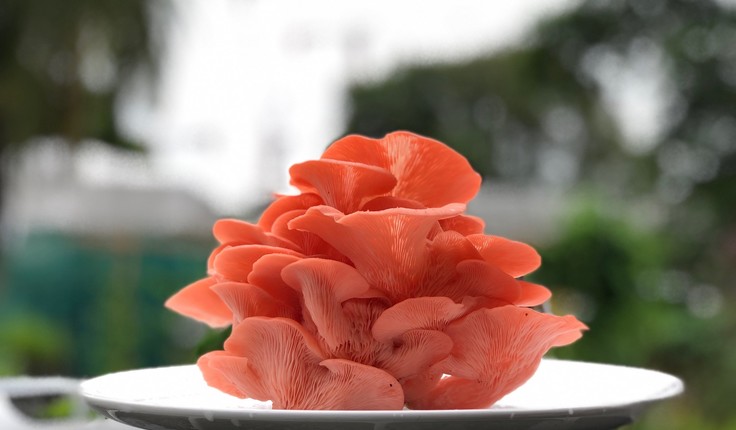
2019 NZILA Firth Conference Speaker
One of the speakers at the 2019 NZILA Firth Conference is Bjorn Low, leader of a grow-your-own-food movement aimed at changing the Singaporean mindset around farming. In 2012 he co-founded Edible Garden City, with the hope of building urban farms to help Singapore tackle its food security challenges.
Born and raised in the tropical island city-state, he started his career as an online marketing specialist at the then BLUE Interactive a WPP Digital agency, having completed his MBA prior to that. His stint in marketing took him to London, where he worked on the global Debeers account as an Associate Business Director.
It was during a particularly harsh winter that he realised something was missing in his life, and that working in the corporate sector was not something he wanted to continue doing. Low quit his job, and for the next 3 years, travelled and worked on organic farms across Europe, before returning to his homeland.
Low will be speaking at the Christchurch conference on food and land use disruption.
LAA: Why did you start Edible Garden City?
BL: I had the opportunity to experience small scale decentralised farming in Europe and after getting my Diploma in Biodynamics agriculture from East Sussex, I wanted to bring some of what I’ve experienced back into Singapore. A city state with 5 million people food security and food sustainability needed a push in the right direction. Singapore imports 90 percent of what it consumes and has only 1 percent land dedicated to agriculture. I felt there was a possibility for farming to take a different approach targeting under utilised land. Singapore as a garden city, the green backbone of the city is well established, there was an opportunity to be creative here and to turn it into an edible garden city adding towards the food sustainability goals in the city.
LAA: What's the ethos behind it?
BL: As agriculture and farming is so inaccessible in Singapore, we wanted to connect urbanites back to nature and urban farming was a great tool for us to do so. We practice natural horticulture and farming techniques and use sustainable design ideologies and farming principles how we approach the build of the urban farms and food gardens. We believe strongly that these urban farms can provide CARE to the community from the food we grow that nourishes the community to the programs that we run that engages the community through horticulture therapy programs.
LAA: What does it do?
BL: Our design approach on using permaculture food foresting as one of our landscape design methodology to bring food gardens into commercial development in Singapore.
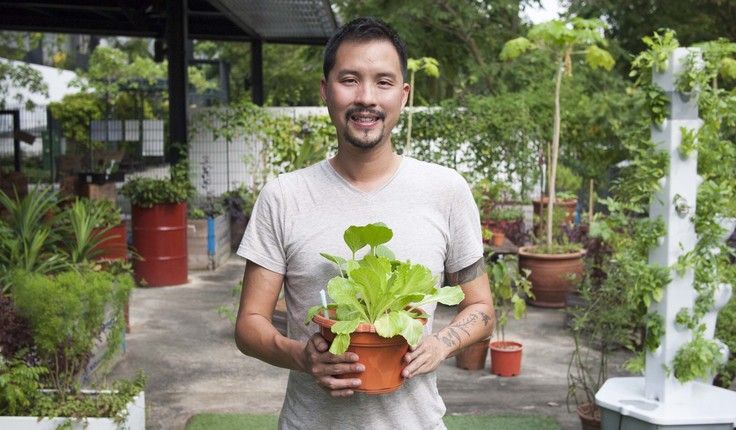
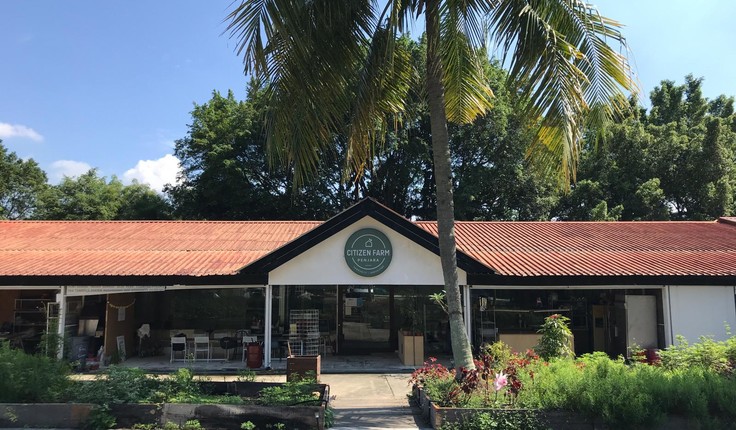
Citizen farm our close loop urban farm on 8000 sq metres in the city practices a close loop farming system where food waste from the city provides fertility for our urban farm operations.
All of our Urban farms create social impact through our employment policies by providing employment to beneficiaries, create environmental impact by recycling of food waste and community engagement by allowing the community to participate in the healing journey of horticulture therapy.
LAA: Why do you believe so strongly in what you're doing?
BL: We have seen first hand the impact that community farming has played in bringing socially isolated elderly out of their zone into a community setting, we have seen immense improvements in their engagement through the sessions. Our work with the national parks board on research for horticulture therapy has yielded positive scientific data of the ability of nature and food growing on reducing stress markers in the participants. The results that we have seen we feel needs to be scaled up so it can impact more in the community in SIngapore and other cities around the world.
LAA: What particular challenges do you have to deal with, living in Singapore?
BL: Singapore is a highly dense city, and one of the most expensive in the world where the economy and financial viability has been the largest driving force behind what is deemed as a marker of success in our city state. Urban farming on many fronts is really in a new space, a lot of times the values created by urban farming is largely intangible and cannot be measured in dollars and cents. We spent the first 5 years really getting ourselves to a state that it could be understood by the masses.
LAA: How do you measure success?
BL: Every food garden that we designed, built and maintained, when the foodscaped garden thrives in the microclimate of that rooftop or the plots in the city, the immense joy of seeing that garden come alive and produce good food for the community that joy is the best gauge for success. By survivIng in the urban farming space in the last 7 years and providing 40 jobs to aspiring urban farmers in Singapore.
In 2018 our trial of bringing a close loop community and social centric farm in the city *Citizen Farm* was taken as a benchmark on how the government will drive future urban farming land use policy, that we felt we have done our bit for the future of urban farming in Singapore.
LAA: What will your message be at the conference?
BL: I would love to explore further the power of healing food driven landscapes through urban farms.
Share
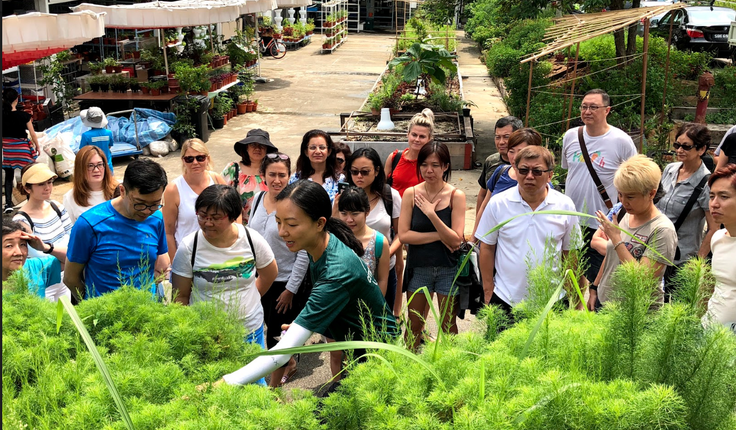
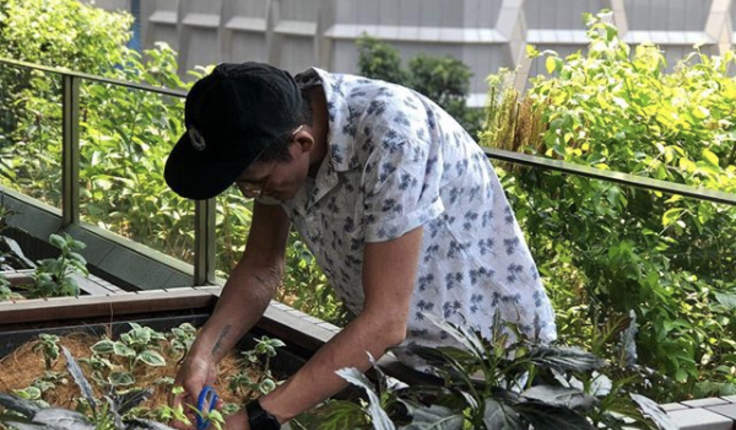
17 Jan
Call for interest: updating the Visual Simulation Guidelines
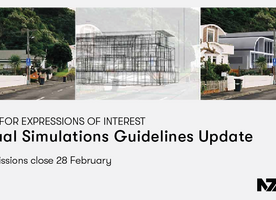
Expressions of interest welcome
Ngā mihi o te tau hou | Happy new year! We have an exciting opportunity for members to kick off …
19 Dec
Meri Kirihimete

The team is taking a break for the festive season! We'll all be out of the office from 20 December, …
19 Dec
President's Update December 2024
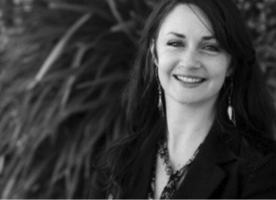
Kia ora koutou, Here we are at the end of 2024. It’s been a busy and challenging year in many …
Events calendar
Full 2025 calendar